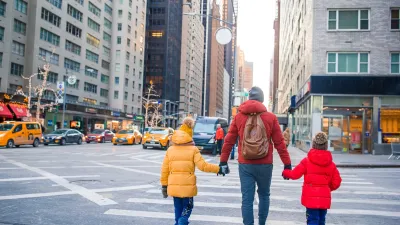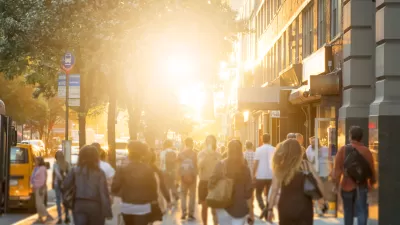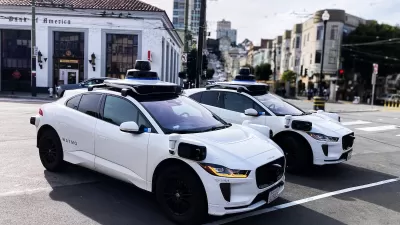James Howard Kuntsler muses on how the end of cheap oil will mean the parallel decline of the suburban sprawl economy of the South and its NASCAR subculture.
"It [is] significant...that the NASCAR subculture arose in the South, the old Dixie states, where the automobile had had tremendous social transformative power in the previous half century. Prior to the Second World War, Dixie had been an agricultural backwater with few cities of consequence, peopled by (among other groups) a dominant Caucasian peasantry called "rednecks" (because of the effects of the sun on exposed pale skin in the dusty crop rows).
States like Georgia, North Carolina and Alabama were huge. You could fit eleven Connecticuts in Alabama and have room for Rhode Island and Delaware. Unless they lived right along the railroad line, the folks down on the farm were pretty much stuck in place. The automobile liberated the redneck peasantry from the oppression of geography as emancipation had liberated the black peasantry from the legalities of chattel ownership.
Cheap gasoline along with cheap air conditioning made the South livable for people who had a choice about where to make their homes. Cheap air conditioning in particular made city life possible in a region that had lagged hopelessly behind the states of the Old Union. Orlando, Houston, Charlotte and places like them had gone from being smaller than Buffalo, N.Y., to becoming immense crypto-urbations of ring freeways, radial commercial highway strips and far-flung housing subdivisions around tiny withered peanuts of prewar traditional downtown cores. Houston by the year 2000 was not a city in the traditional sense of being composed of neighborhoods and districts; rather, it was an assemblage of single-use zoning wastelands: the shopping wasteland, the medical-services wasteland, the university wasteland, the cul-de-sac house wasteland and so on, dominated by massive overlays of automobile infrastructure.
And that is where things stand today with the region and the nation it is still attached to, sleepwalking into the early years of a permanent global fossil fuel crisis that will once again transform the nation in ways we can only sketchily imagine."
FULL STORY: Cheap Oil Is Over: Kiss the Gas Guzzling NASCAR Era Goodbye

Alabama: Trump Terminates Settlements for Black Communities Harmed By Raw Sewage
Trump deemed the landmark civil rights agreement “illegal DEI and environmental justice policy.”

Planetizen Federal Action Tracker
A weekly monitor of how Trump’s orders and actions are impacting planners and planning in America.

The 120 Year Old Tiny Home Villages That Sheltered San Francisco’s Earthquake Refugees
More than a century ago, San Francisco mobilized to house thousands of residents displaced by the 1906 earthquake. Could their strategy offer a model for the present?

Indy Neighborhood Group Builds Temporary Multi-Use Path
Community members, aided in part by funding from the city, repurposed a vehicle lane to create a protected bike and pedestrian path for the summer season.

Congestion Pricing Drops Holland Tunnel Delays by 65 Percent
New York City’s contentious tolling program has yielded improved traffic and roughly $100 million in revenue for the MTA.

In Both Crashes and Crime, Public Transportation is Far Safer than Driving
Contrary to popular assumptions, public transportation has far lower crash and crime rates than automobile travel. For safer communities, improve and encourage transit travel.
Urban Design for Planners 1: Software Tools
This six-course series explores essential urban design concepts using open source software and equips planners with the tools they need to participate fully in the urban design process.
Planning for Universal Design
Learn the tools for implementing Universal Design in planning regulations.
Clanton & Associates, Inc.
Jessamine County Fiscal Court
Institute for Housing and Urban Development Studies (IHS)
City of Grandview
Harvard GSD Executive Education
Toledo-Lucas County Plan Commissions
Salt Lake City
NYU Wagner Graduate School of Public Service





























